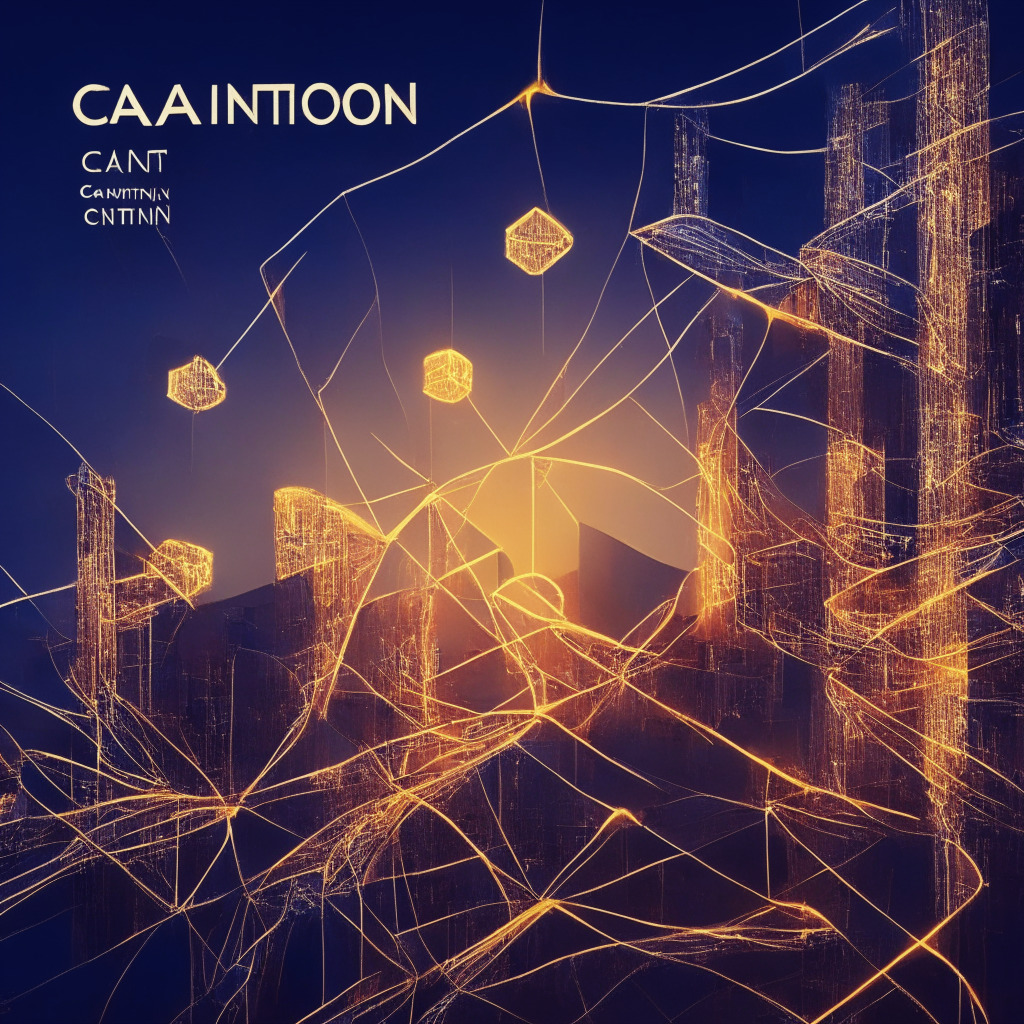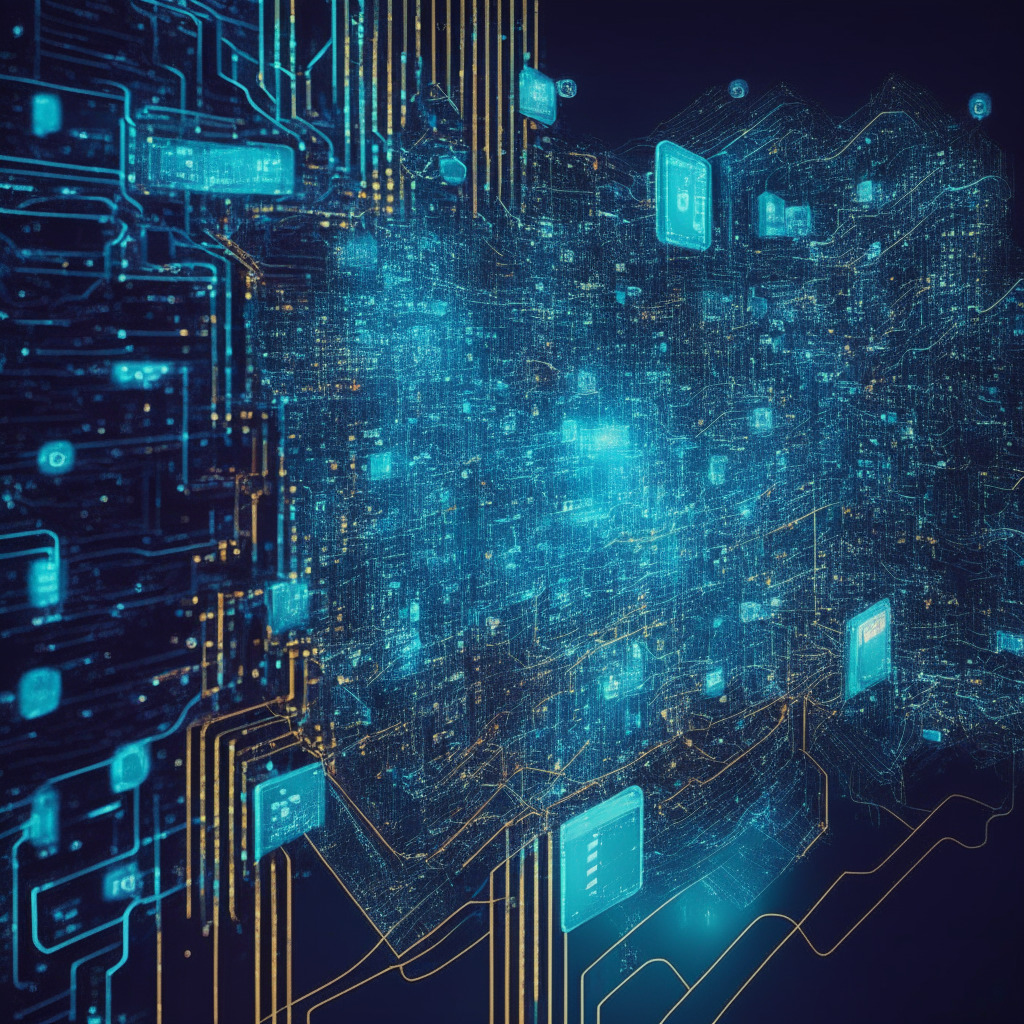A recent Reuters/Ipsos poll shows 61% of Americans view artificial intelligence (AI) as a threat to humanity. This concern stretches across industry leaders like Elon Musk and Warren Buffett. Calls for regulation, transparency, and cooperation emerge to balance AI’s benefits and potential risks.
Search Results for: microsoft
Elon Musk Questions OpenAI’s Shift from Non-Profit to Profit: Legal and Ethical Implications
Elon Musk raises concerns over the legality of OpenAI’s transition from a non-profit to a for-profit organization, comparing it to a rainforest protection group turning into a lumber company. This highlights challenges in balancing ethical considerations and profit-making motives in AI, and the need for addressing legal, ethical, and transparency issues within AI technology development.
Elon Musk, OpenAI’s Dilemma, and the Battle Between Open-Source and Profit-Driven AI
Elon Musk’s OpenAI, initially open-source, faces criticism for drifting towards a closed-source, for-profit model, raising concerns about the future of AI development. The growing financial relationship with Microsoft and increasing likeness to Google’s DeepMind sparks debate on AI’s consequences and the balance between open-source ideals and for-profit motives.
OpenAI’s ChatGPT Joins AI Race with Internet Connectivity: Competing or Complementing?
OpenAI’s recent ChatGPT update introduces Internet connectivity, allowing the AI model to access real-time information during chat sessions. Now in direct competition with Google’s Bard and Microsoft Bing, ChatGPT’s new feature presents vast potential for users by searching the web for current information on various subjects.
AI Regulation: Striking the Balance Between Security and Innovation
In a Senate subcommittee session, OpenAI CEO Sam Altman testified before Congress, discussing the potential threats of generative AI models and the need for AI regulation. The speakers urged for immediate action, privacy protection, government oversight, and transparency. However, finding the right balance between controlling AI dangers and fostering innovation remains crucial to ensure a safe, responsible future.
Decoding Blockchain’s Future: Revolutionary Potential vs. Practical Challenges & Risks
In this article, we explore the future of blockchain technology, highlighting its potential to transform industries, improve transparency, and eliminate intermediaries. However, concerns about scalability, security, privacy, and regulation present challenges that must be addressed for successful integration into society.
Ethereum Price Dips and Lido Withdrawals: Analyzing the Impact on Blockchain’s Future
Ethereum price dips 0.5% in 24 hours as Lido rolls out withdrawals on its ETH staking platform. Despite the decline, technical indicators suggest a breakout rally. Increased adoption and ETH staking withdrawal availability could drive prices upwards.
Canton Network: Revolutionizing Markets or Struggling with Decentralization, Privacy, and Control
Canton Network, a privacy-enabled interoperable blockchain, aims to streamline financial markets by creating a “network of networks” for asset synchronization. With support from Microsoft, Capgemini, Deloitte and others, it seeks to balance decentralization, privacy, and control for widespread adoption by financial institutions.
Canton Network: Financial Giants Unite for Blockchain Revolution and Web3 Challenges
Canton Network, a blockchain technology supported by financial giants like Deloitte, S&P Global, and Moody’s, aims to revolutionize financial markets using Web3 infrastructure. Offering decentralized services to increase transaction efficiency, it faces challenges such as data privacy, control concerns, and scaling limitations. The network seeks to test interoperability starting July, emphasizing its potential in asset tokenization and improved global trading efficiency.
Crypto Tokens as Securities: Ripple Case Study, Arbitrum Dilemma, and Canton Network Prospects
The crypto world continues to debate whether tokens are securities in the US, as companies like Ripple battle costly lawsuits from the SEC. Meanwhile, projects like the Arbitrum Foundation push boundaries, despite concerns that revenue distribution might label their tokens as securities, and major corporations form coalitions to create institutional blockchain solutions.
Google Bard vs. OpenAI ChatGPT: The Battle for AI Chatbot Dominance and Future Implications
Google’s AI chatbot, Bard, challenges OpenAI’s ChatGPT with upgrades introduced at the Google I/O conference. Transitioning to the PaLM 2 model and offering different versions for various applications, Bard provides improved performance in translation and coding support. Despite ChatGPT’s current adoption advantage, Bard’s free availability may attract users.
Balancing AI Innovation and Privacy: The Impact of EU’s Regulatory Milestone on Global Tech
MEPs have voted for facial recognition banning and predictive policing tools in the AI Act, signifying progress in balancing innovation and privacy. As AI technologies grow, transparency measures and risk classification are proposed to navigate worldwide regulations, addressing legal, ethical, and safety concerns.
EY’s Ethereum Platform for Carbon Tracking: Boon for ESG or Risky Business?
Ernst & Young’s Ethereum-based platform, EY OpsChain ESG, enables enterprises to track carbon emissions and credit traceability, offering transparency and detailed traceability through tokenization. Aligning with InterWork Alliance standards, the platform aims to improve Environmental, Social, and Governance (ESG) decision-making and promote a sustainable future, albeit with potential limitations in data validation and tokenization accuracy.
Google’s AI Revolution: PaLM 2, Gemini, and the Future of Search Engines & Consumer Experiences
Google’s recent announcements at the annual Google I/O conference reveal AI-backed features, like the updated Pathways Language Model (PaLM 2), which improves reasoning, coding, and multilingual capabilities. Integrated into 25 apps, PaLM 2’s advancements signal significant changes in search engines and AI integration, with forthcoming Gemini offering even more advanced capabilities.
EY’s Ethereum Platform for Carbon Tracking: The Pros, Cons, and Future Implications
EY unveils an Ethereum-based platform, EY OpsChain ESG, aimed at tracking carbon emissions and carbon credit traceability for enterprises. The platform emphasizes sustainability and environmental, social, and governance measures, leveraging tokenized emissions inventory to enable transparency and progress measurement. However, blockchain’s energy-intensive nature and reliance on carbon credit tokens invite criticism and warrant careful analysis.
Metaverse Debate: Tech World Divided Between Potential and Abandonment
This article debates the metaverse’s future, as some claim it has run its course and been abandoned by businesses, while others like Tim Sweeney argue that there are still 600 million monthly active users across platforms, and tech giants continue investing in its potential.
Chia Network Enters Web3 Gaming: Facing Giants and Redefining the NFT Landscape
Chia Network launched the Chia Open Digital Economy (CODE) framework, aiming to empower an open metaverse of games and applications with interoperable assets. Chia announced a proof-of-concept trading card game, ChiaTCG, embracing Chia NFTs and turning them into playable cards, showcasing the potential of NFTs within gaming.
Canton Network: Uniting Financial Markets, Privacy, and Blockchain Future
Canton Network, a privacy-centric blockchain project by Microsoft, Goldman Sachs, and other finance giants aims to offer an interoperable system for financial institutions. Starting tests in July, it targets synchronization of isolated financial markets, streamlining global trading and enhancing data privacy.
Rise of Generative AI: Revolutionizing Industries, Web3, and Balancing Potential Risks
Generative AI, a subset of machine learning, is revolutionizing industries and is projected to hold 30% of the AI market by 2025. With applications in various sectors, GANs, ChatGPT, and DALL-E introduce both opportunities and risks in terms of intellectual property, content quality, and data privacy.
Canton Network: Revolutionizing Finance or Privacy Concerns Looming? Pros & Cons Explored
Digital Asset recently announced plans to launch the Canton Network, a privacy-enabled interoperable blockchain network for institutional clients. Backed by major industry players, this decentralized infrastructure aims to interconnect applications, streamline cross-chain transactions, and address privacy, decentralization, and compliance concerns within the financial market.
New York’s Crypto Hub: Embracing Blockchain Success or Facing Regulatory Hurdles?
New York City has become a hub for blockchain and cryptocurrency innovation, attracting numerous startups and established firms. Despite regulatory concerns, increased adoption of cryptocurrencies and diverse blockchain applications indicate a promising future for the technology in the heart of the financial world.
AI Race Intensifies: China’s Battle Against US Sanctions and Global AI Dominance
China is forging ahead in artificial intelligence development despite facing challenges due to US sanctions limiting access to advanced chips. Experiments show promise, and Chinese companies, including Alibaba, are creating innovative AI solutions, encouraging global competition and pushing the limits of current capabilities.
Memecoin Frenzy Raises Bitcoin Fees: Adoption Boost or Scalability Threat in Crypto Market?
The trading frenzy of memecoins like Pepe has raised Bitcoin’s transaction costs to their highest point in two years, potentially putting pressure on the vulnerable market heavily influenced by memes. Meanwhile, the crypto community must also address long-term scalability and increasing fees as more users enter the market.
Blockchain Revolution: Decentralization Dream or Environmental Nightmare?
Blockchain technology offers benefits like transparency, immutability, and decentralization, revolutionizing various industries. However, challenges like energy consumption, market volatility, and potential misuse have raised concerns. As blockchain adoption accelerates, it’s crucial to adapt and address these challenges for a secure, efficient, and sustainable future.
The Great AI Debate: Balancing Innovation, Risks, and Collaborative Safeguards
The meeting between U.S. Vice President Kamala Harris, President Biden’s advisors, and AI industry CEOs discussed potential risks posed by AI technology, emphasizing shared responsibility between governments and companies in risk mitigation. Topics covered transparency, safety evaluation, and protection from malicious actors. The Biden Administration allocated $140 million to National AI Research Institutes, and White House plans to release a draft policy on government usage of AI.
Bing Chat vs ChatGPT Plus: AI Power Struggle Leaves Users Confused
Microsoft’s Bing chatbot will soon have full access to GPT-4, multimodal support, and personalized context, potentially outperforming ChatGPT Plus, which charges $20/month. Bing’s additional features of third-party integrations and free access make it a compelling competitor in the AI chat landscape, prompting users to question the value of upgrading their subscriptions.
AllianceBlock’s NexeraID Joins W3C: Impact on Digital Identity and Decentralized Finance
AllianceBlock’s NexeraID recently joined the World Wide Web Consortium (W3C), working towards standardization of decentralized identifiers and verifiable credentials. This collaboration solidifies NexeraID’s commitment to web standards, empowering users to manage digital identities securely, fostering innovation, and driving advancements in digital ID space.
Revolutionizing Digital Marketing: Web3 and One-to-One Strategies Unite
The fusion of Web3 and classic one-to-one marketing is poised to significantly reshape the digital […]
AI and Cryptocurrencies: A Seamless Partnership or Recipe for Scams and Control?
Crypto is the only form of money that artificial intelligence (AI) systems can incorporate, Erik […]
Privacy Policy
At chain.review, your privacy is of utmost importance to us. This Privacy Policy outlines the […]


























